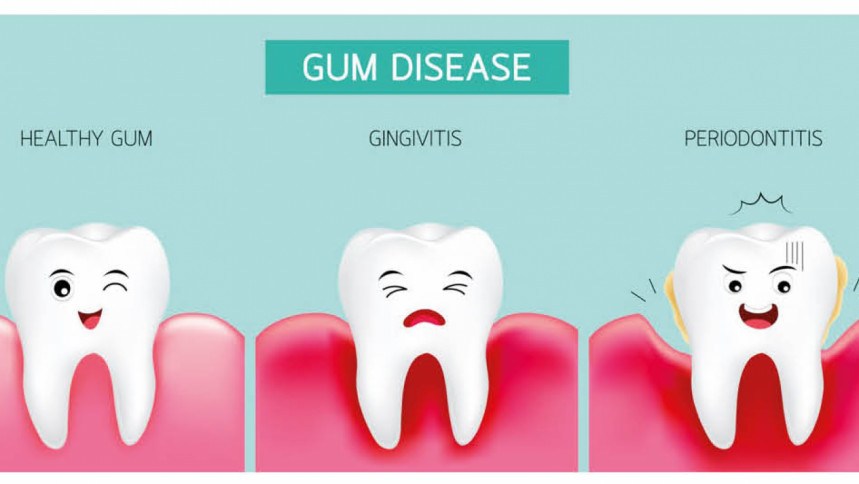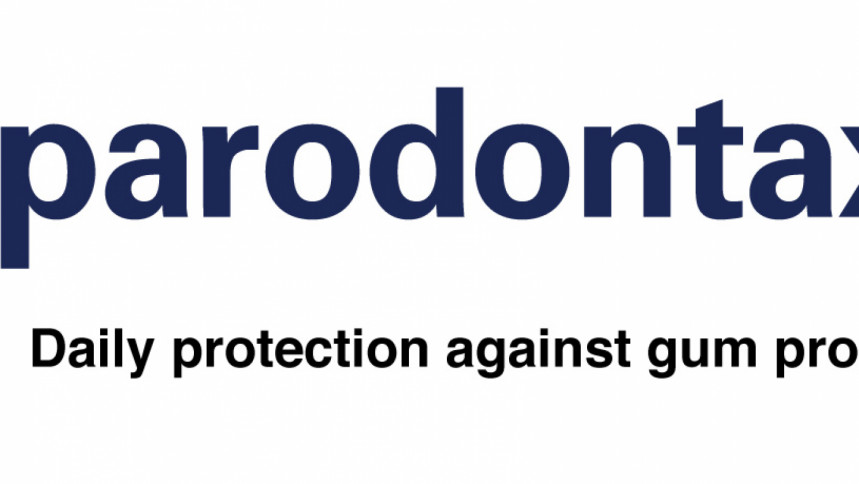Bleeding gums: a ticking bomb

Healthy gums don't bleed, so if you spot blood when you brush or floss, it could be a sign of gum problems. This is a widespread problem in Bangladesh, affecting 29% of adults. One of the main causes leading to bleeding gums is plaque build-up.
Dental plaque is that soft, sticky film that builds up on teeth and under the gums throughout the day. And guess what? It contains millions of bacteria! When you eat—especially carbohydrates or sugar—you're not the only one getting a meal, so are the bacteria on your teeth. After "eating," these bacteria produce acids that erode the tooth enamel and cause cavities. If plaque is left on teeth for too long, it will harden into tartar, and can cause more than just cavities. It can cause tooth discolouration and sensitivity as well as gum problem.
One of the most commonly occurring gum problems is called Gingivitis. Gingivitis is a bacterial infection of the gums. It is caused when plaque builds up on your teeth and gums. According to the Mayo Clinic, it is a mild form of gum disease (periodontal disease) that causes irritation, redness and swelling (inflammation) of the gingiva, the part of the gum around the base of teeth. Easily noticeable symptoms are swollen or puffy gums, dusky red or dark red gums, gums that bleed easily while brushing, bad breath, as well as receding and tender gums.

How to Prevent Gingivitis
Think of gingivitis as the initial warning stage of gum disease, and it starts due to poor oral hygiene. Ignoring gingivitis, on the other hand, can lead to periodontitis. This stage of gum disease cannot be treated at home. But with just a few lifestyle changes, there are a few easy ways to reduce the chances of developing plaque-induced gingivitis, including-
- Visiting your dentist or dental hygienist for regular check-ups. Professional cleaning can also help to remove plaque from hard-to-reach areas of your mouth.
- Adopting a balanced diet to help keep gums healthy. Be sure to eat a nutritious diet that is rich in fruits and vegetables – and limits sugary drinks and snacks.
- Brushing your teeth for two minutes twice a day. You should also aim to floss your teeth at least once a day to remove any remaining plaque and food debris from your mouth in between meals.
- Choose the right toothpaste such as Parodontax.
Parodontax is a fluoride toothpaste designed for daily use to maintain gum health, strengthen teeth, freshen breath and has all benefits of a regular toothpaste. Parodontax toothpaste, specially formulated with mineral salts, is clinically proven to be 4 times more effective to physically remove build-up of plaque bacteria on teeth and along the gum line. Use Parodontax daily as recommended on the pack. In Bangladesh it is marketed by 'GSK Bangladesh Private Limited,' and can be found in your nearest pharmacy, general store and super shops.


 For all latest news, follow The Daily Star's Google News channel.
For all latest news, follow The Daily Star's Google News channel. 



Comments